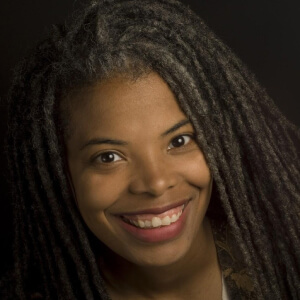Home / AES 2023 International Conference on Audio Education – Keynotes
You are currently logged in as an
Institutional Subscriber.
If you would like to logout,
please click on the button below.
Home / AES 2023 International Conference on Audio Education – Keynotes

Presentation
The Present of Audio Education
Abstract
Audio educators are still grappling with the effects of Covid and the impacts on their learners, their institutions, and society as a whole. This presentation will concentrate on the present time in audio education, and some of the ways that we can approach the challenges we are faced with in a changing educational landscape. The sudden need to move education online gave educators an unprecedented opportunity to take risks in their delivery. However, prior to 2020 there were a growing number of educators who had embraced online and blended learning models. This presentation will explore some of the themes that are important to audio educators when exploring possibilities for different modes of teaching, namely curriculum design, accessibility, the particular challenge of teaching practical subjects remotely, how we use tools for delivery, and communities in learning and teaching. Looking at several models and frameworks for flexible delivery of education, it will encourage audio educators to reflect on their current practice and identify how they can enhance this using best practice in blended delivery of learning.

Presentation
The Future of Audio Education in Primary and Secondary Public Schools
Abstract
How do we train the next generation of engineers? This session will examine the current climate of public education while highlighting a successful public school music production and engineering program in the United States. Using the web-based DAW, students starting at the age of 8 are learning essential audio engineering terms, recording techniques, and multi-instrument skills for producing, composing and recording music. Based on a hybrid model, this example curriculum blends fundamental audio engineering skills with state and national standards for music education. Learn how music technology is creating more opportunities for diversity, accessibility and inclusion in public education while fostering students’ creativity and excitement for audio engineering.

Presentation
Immersive and Inclusive: Cracking the Credibility Code
Abstract
Participation by underrepresented groups (women and minorities) is low: fewer than 10% of engineers working on top-charting music, games, and top-grossing films are from these groups. Despite their passion and dedication, these talented individuals face numerous barriers to entry and discouraging influences which in turn play a part in these low figures. Furthermore, a “leaky pipeline” is observed where interested women and minorities often “leak out” of traditional career paths, including those where immersive audio is used.
There are certain remedies that are being undertaken by affinity groups in audio that include mentoring, role models, and networking in order to improve representation; however, there is little data regarding the experiences of people who are on this path. Therefore, the researcher undertook a grounded theory study to discover the main concerns of underrepresented groups who took part in immersive audio workshops, and how they process their concerns.
The resulting theory shows that women and minorities want to be seen as credible, and that these creative and innovative audio engineers find a way to “leak up, not out” of the audio career pipeline by evading hidden “codes of credibility.” In this keynote, the researcher shares their career trajectories and perspectives, and proposes interventions that educators might consider when developing networking and mentorship opportunities for students. By better understanding the challenges faced by underrepresented groups and implementing inclusive practices, advocates can create a more diverse and equitable immersive audio industry.

Presentation
Audio DSP Education: Keeping it Real
Abstract
Most Digital Signal Processing (DSP) these days is taught using a block oriented approach via object libraries/frameworks such as JUCE or Matlab VST that work within the context of existing Digital Audio Workstations (DAWs). While there is much to commend in this approach, as it allows fast and easy development of signal processing applications/plugins, there is a danger that the student will become remote from the deeper implications of the processing they are implementing. Furthermore, it may encourage a pick and mix approach to DSP where signal processing objects/blocks are used without real understanding. There is also a need for people to have the full knowledge needed to implement new or custom versions of the libraries or objects/blocks.
The purpose of this talk is to present an alternative vision of how we might approach teaching DSP from the point of view of dealing with real signals and implement them in real time on the low cost hardware that is becoming increasingly available at prices that are accessible to ordinary students. This vision was partially implemented by the speaker in their DSP courses shortly before retirement. But this talk will reveal the full vision so that others may adapt or carry it on in the future.
The talk will start with some historical background of DSP, its usage in the telecoms industry, and the limitations that industry imposed on processing. It will then expand on that to describe the vision of teaching sample based audio processing, that can be readily simulated and “played with” on conventional processors, in non real time and real time. It will also discuss how you might embed such processing in an effects box using one of the many single board computers available.
As part of all this, issues such as what computer language might be a good vehicle will also be discussed, and issues such as assessment, transferable skills, etc. will also be covered.
Hopefully the talk will inspire topics for discussion, or argument, as to the best/alternate ways forward.